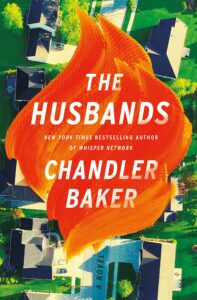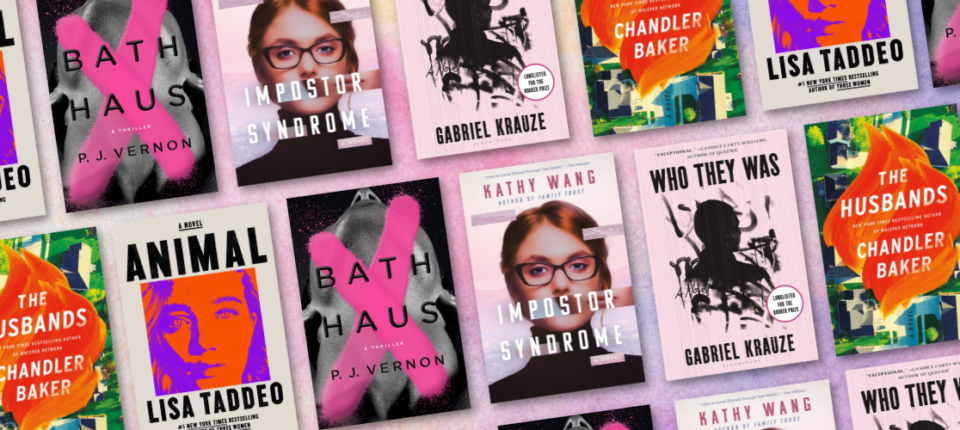Welcome to June! I will tell you more than once that this summer is incredibly rich, a function of pandemic printing shutdowns that work in the reader’s favor. I have a very respectable list of runners-up, like Christine Mangan’s follow-up to Tangerine, Palace of the Drowned, Nekesa Afia‘s buzzy Dead Dead Girls, and Riley Sager’s Survive the Night. The books below are my picks in a month where someone else could easily have selected five different high-quality books: I can’t recall another month when I could have made that declaration. But enough about runners-up: let’s look at the medalists.

Lisa Taddeo, Animal
(Avid Reader/S&S)
I am a huge fan of Taddeo’s Three Women, a narrative nonfiction book which was really an ethnography without the jargon. Taddeo’s reporting and writing in that book is astonishing: she dives deep into the disparate lives of the titular women without ever losing control of the narrative. The same is true of Taddeo’s fiction debut, Animal. The writing is so engaging on the sentence level that when you sink into the larger argument the Taddeo is making you can’t help but feel something akin to awe. Read this one.

PJ Vernon, Bath Haus
(Doubleday)
Bath Haus begins with our hero, Oliver Park, a twenty-ish recovering addict supposedly in a monogamous relationship, takes advantage of his older partner’s absence to tomcat at a gay bath house (called Bath Haus). It’s refreshing to see a man on the sharp end of the casual sex has its consequences stick, but Vernon is not just making a sociological point. He has presented us with an enticingly dark and twisted set up, and boy does he play it out.

Kathy Wang, Impostor Syndrome
(Custom House)
Here’s a trade secret: Writers talk so much about imposter syndrome I rarely think about it in terms other than how am I going to convince someone to publish my precious essay instead of someone else’s (someone else being younger, smarter, better looking, a brilliant writer, etc.) Wang’s book is not about writers, it’s about business, and espionage, and the weird social scene and celebrity culture of Silicon Valley. This is crime fiction for everyone who misses The Americans: it’s a smart Russian spy story without those terrible high-waisted jeans.

Gabriel Krauze, Who They Was
(Bloomsbury)
Krauze was on the Booker longlist for this brutal and thought-provoking novel. Once you get used to the dialect—like Marlon James’s A Brief History of Seven Killings and Huck Finn—the dualities Krauze explores open up in an oblique but compelling way. The narrator goes by Gabriel at the university where he’s a thoughtful yet ordinary student (paging all autofiction fans). In his other life, the narrator is deep in the world of London’s gangs, dabbling in all of the fun stuff: guns, drugs, robbery, even a stabbing. There is something reminiscent of A Clockwork Orange here—praise I do not give out lightly.

Chandler Baker, The Husbands
(Flatiron Books)
(publication date has been moved to August 3)
The Whisper Network, Baker’s memorable workplace thriller, put her squarely in the territory of writers like Renee Knight (Disclaimer, The Secretary) and Harriet Tyce (Blood Orange). Whisper detailed the lives of several women at a prestigious law firm with a Weinstein-style senior partner. In the Husbands Baker turns her steely eye on the domestic, creating an Austin, Texas subdivision with a reverse Stepford vibe. Newcomer Nora Spangler, an attorney who works a brutal second shift taking care of her family, can’t believe how helpful the husbands are in Dynasty Ranch. Is this a place where a woman can really have it all, or is something more sinister at play?




















